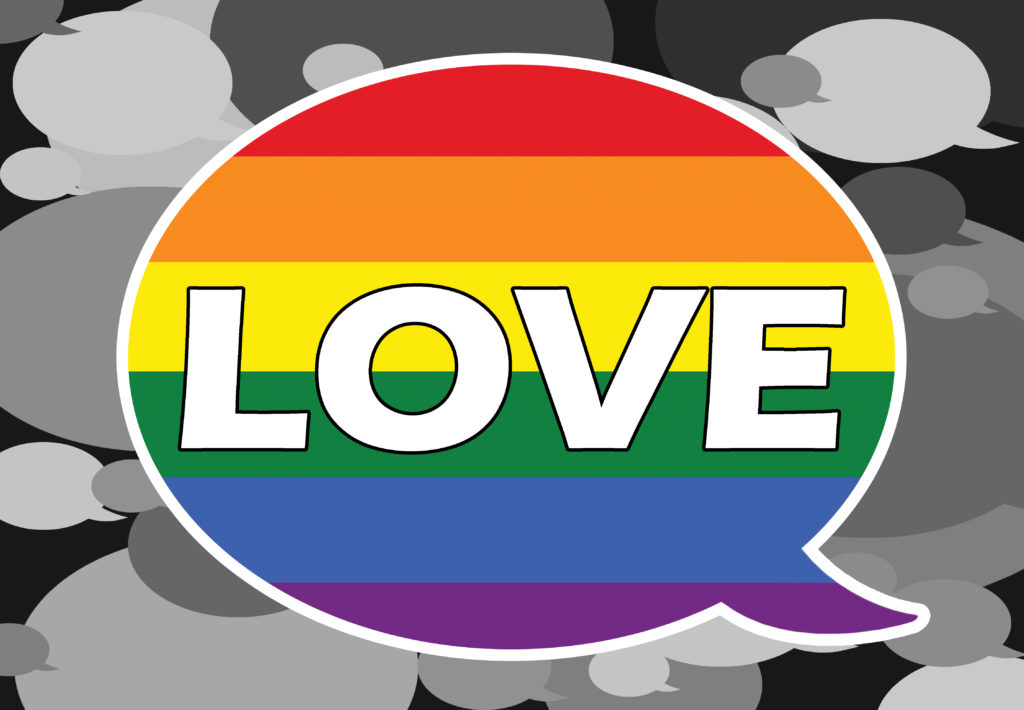Mackenzie Presbyterian University has received attacks and criticism from a text called “homophobic”. Published on its website since 2007. We, of various Christian denominations, have come to show our solidarity with the institution. We speak out against the indiscriminate use of the term “homophobia”, which aims to apply to both murderers, assailants and discriminators of homosexuals and Christian religious leaders who, in the light of the Holy Scriptures, regard homosexuality as a sin. Today, our freedom of conscience and expression cannot be denied or confused with violence. We believe that mentioning sins to call men to voluntary repentance is an integral part of proclaiming the gospel of Jesus Christ. No hate speech can be based on the preaching of God’s love and grace.
As Christians, we have a biblical mandate to offer the gospel of salvation to all. Jesus Christ died to save and reconcile human beings to God. Do we believe according to the scriptures that all have sinned and lack the glory of God? (Romans 3:23). We are all sinners. Is there no division among sinners? and “no sinners. ” The Bible presents long lists of sins and reports that without God’s forgiveness man is lost and condemned. We know they are sins: “Prostitution, impurity, lust, idolatry, witchcraft, enmity, conflicts, rivalry, anger, quarrels, dissensions, heresy, envy, murder, drunkenness, gluttony? (Galatians 5:19). In its traditional form. and In historical interpretation, the Judeo-Christian scriptures treat homosexual behavior as sin, as shown in the texts of Leviticus 18:22, 1 Corinthians 6: 9-10, Romans 1: 18-32, among others. If we want repentance and the conversion of the lost One, we must also name this sin. We do not want a change of behavior under the law, but a conversion of the heart. And the conversion of the heart does not happen through external pressure, but through the action of grace and persuasion of him Holy Spirit of God, who, as the Lord Jesus Christ taught, convicts of sin, of righteousness and of judgment?
- Therefore.
- We want to ensure that the eventual passage of the so-called anti-homophobia laws will not prevent us from freely making this invitation to everyone.
- An invitation that can also be declined.
- We are not in favor of any type of law that prohibits same-sex conduct; Likewise.
- We are against any law that violates a principle dear to Brazilian society: freedom of conscience.
- The Federal Constitution (article 5) guarantees that “everyone is equal before the law”.
- “stipulates freedom of conscience and belief”.
- And “establishes that no one may be deprived of their rights for reasons of religious.
- Philosophical or political beliefs.
- ” Do we also oppose any outside force? intimidation.
- Threats.
- Verbal and physical aggression? with the aim of changing mentalities.
- We do not accept that the criminalization of opinion is a valid instrument of social change because.
- In addition to being unconstitutional.
- It fosters a wave of unwanted authoritarianism.
- Which undermines the foundations of democracy.
- Just as we do not seek to repress homosexual behavior by these coercive means.
- We do not want the same means to be used to prevent us from preaching what we believe.
- We want to maintain our freedom to publicly proclaim God’s repentance and forgiveness.
- We want to defend our right to open faith-based educational institutions that reflect the Christian worldview.
- We want to ensure that the religious community can speak out on all issues of importance to society.
We therefore express our full support for the statement of the Presbyterian Church of Brazil published in 2007 and partially reproduced, also in 2007, on the website of mackenzie Presbyterian University by its rector, the Reverend Augustus Nicous Gomes Lopes. criminalize the position of Mackenzie Presbyterian University, they must prepare to confront the Presbyterian Church of Brazil, the evangelical churches throughout the country, the Roman Catholic Church, the Jewish Congregation of Brazil and, ultimately, the censorship of the Judeo-Christian scriptures themselves. Religious groups and institutions have the right guaranteed by law to express their confessionality and conscience subject to the Word of God. We are determined that this freedom will not be taken away from us.
[dt_call_to_action content_size?normal?text_align?left?background?fantasy?line?true?style?2?animation?
This manifesto is a collective creation to represent Brazilian Christian thought. For a wide distribution.
[/ dt_call_to_action]

